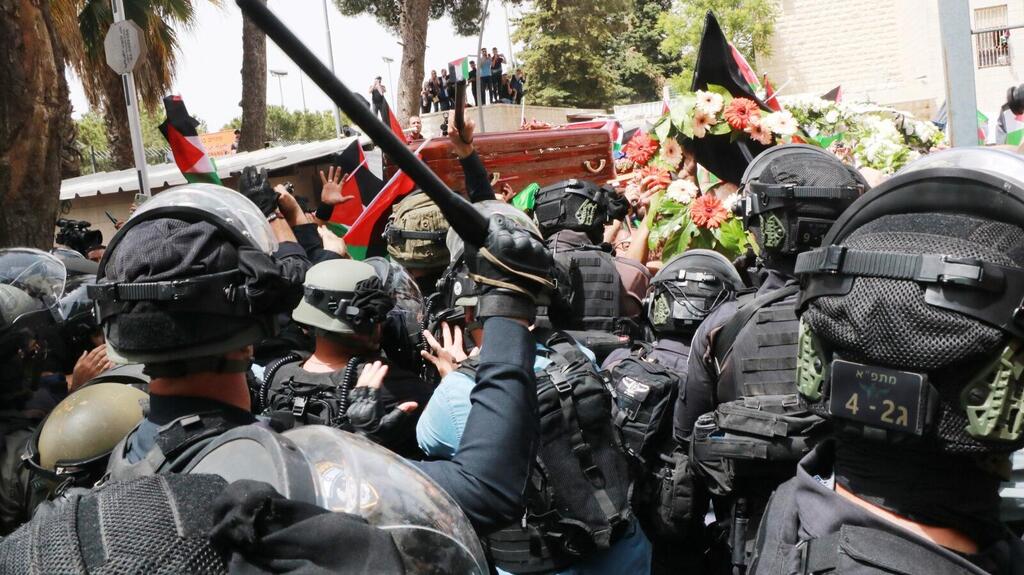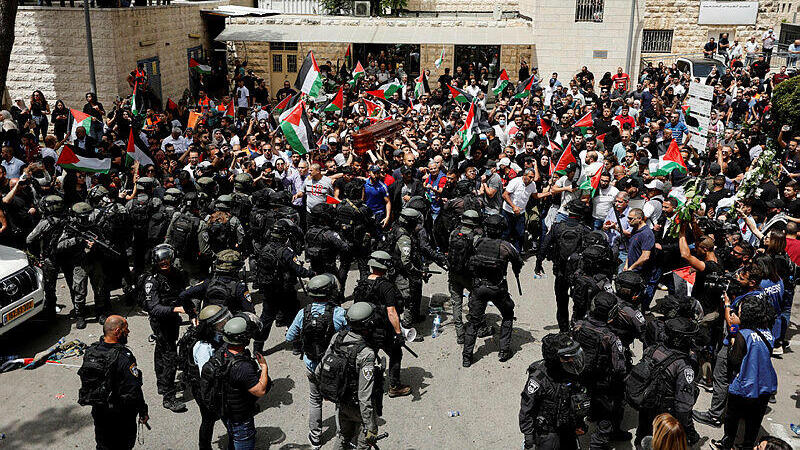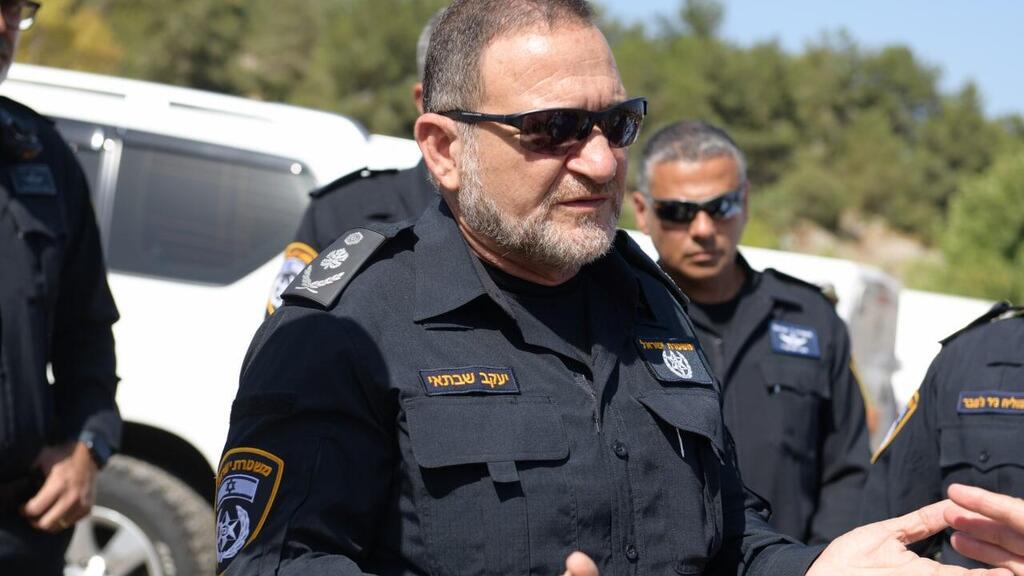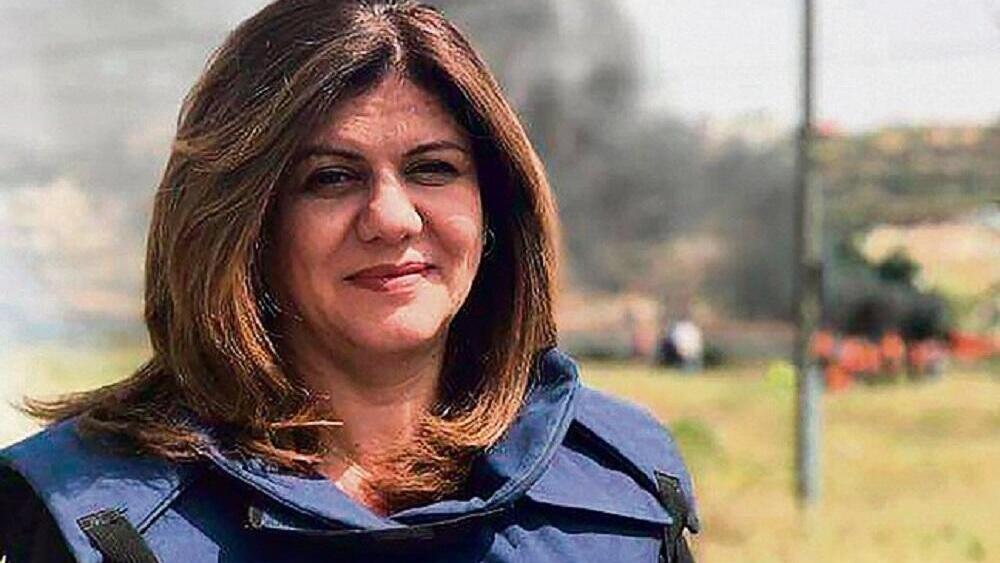Getting your Trinity Audio player ready...
The Israel Police often complains that the public is unkind in its criticism of the force. But, what about the conduct of the police toward the public?
The results of an inquiry into police conduct during the funeral of Al Jazeera reporter Shireen Abu Akleh - killed last month in Jenin - were presented to Police Commissioner Kobi Shabtai at the end of last week.
4 View gallery


Police hitting mourners with batons during the funeral of Shireen Abu Akleh in Jerusalem in May
The disturbing images of officers bashing mourners with batons as they carried Abu Akleh's coffin, almost causing it to fall to the ground, were spread around the world, prompting moral outrage and diplomatic condemnation.
A month after the event the probe into it was finally launched, and it was an opportunity for us to examine the mistakes that had been made and to take steps to correct them.
Instead, the public has been kept in the dark about the investigation's conclusions. So far, we were only told that the inquiry was completed and that no member of the force was to blame, despite the gravity of the events surrounding the funeral reaching as far as the White House.
When Ynet reporter Meir Turgeman asked the police spokesperson to expand on this laconic response, he was told that he would say nothing more for now.
The police are not the private property of Commissioner Shabtai and withholding the findings, which are within the right of the public to know, cannot be subject to his disposition.
Was it withheld because of political pressure? If so, outgoing Public Security Minister Omer Barlev should explain the reasoning. Had ministers in previous cabinets withheld such information, Barlev would have undoubtedly joined in their condemnation.
The minister dispatched his director-general to face the media and offer a credible explanation, but he failed miserably. In fact, his attempts to come up with an answer that would explain the decision could be seen as an insult even to customary political evasion tactics.
"The probe was conducted adequately and does not find anyone responsible," Turgeman quoted police officials as saying in his statement. What does that even mean? What was probed? Who was questioned?
The fact that no police officers were found to be responsible for the debacle only bolsters the need to reveal the information that led to such a conclusion.
In reports published after the funeral, and even before the inquiry was launched, sources indicated that no disciplinary steps would be taken against members of the police.
Is the public to accept the police's version of events in which a funeral procession turned into a riot under the protection of mid-level officers, who were charged with maintaining the peace?
But Israelis should not be surprised by the actions of the police.
The military has still not investigated the killing of the Al Jazeera reporter that took place during the exchange of fire between troops and Palestinian militants - despite the probes conducted by the Washington Post, CNN and the Associated Press - which concluded the IDF was to blame.
The IDF insists it is the Palestinians who are preventing the tragedy from being properly investigated, clinging to the claim that without the fatal bullet, no such probe of her death can be conducted.
[Editor's note: According to Palestinian officials, the Palestinian Authority has relented and handed the bullet that killed Abu Akleh to U.S. authorities for forensic examination Saturday night].
Does the IDF expect the killing to be forgotten? Does the police believe the same about the funeral procession?
Well, international media has moved on to other affairs and local media will not want to upset the domestic security apparatus. Perhaps this is what is most upsetting here - the police and the IDF might be correct.




